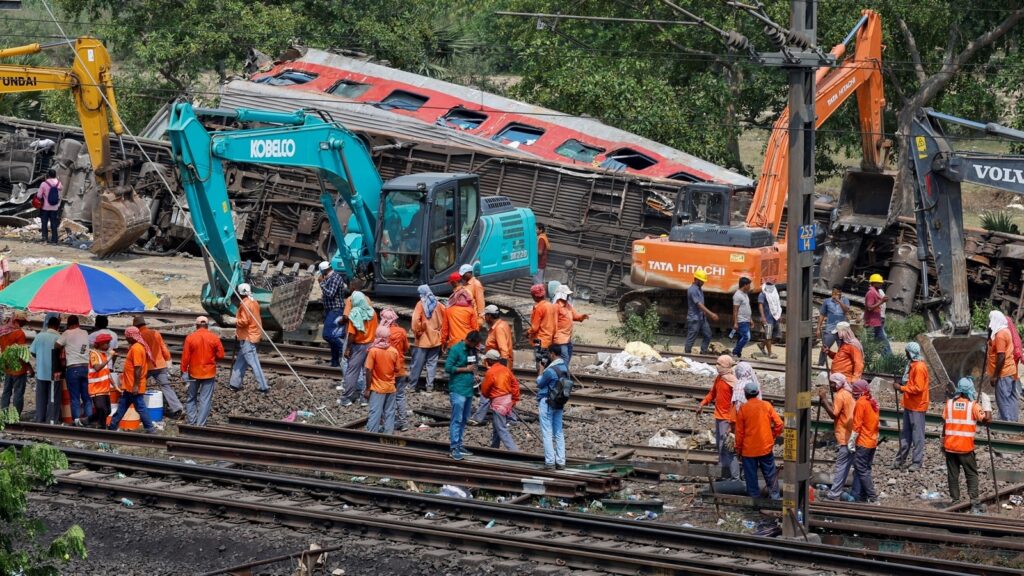Ahorrific crash involving three trains in Odisha’s Balasore district marked the worst railway accident in India in close to three decades. Not since 1995 when an express train piled onto another stationary train near Firozabad in Uttar Pradesh has the country been gripped by a tragedy of this scale. With the death toll at 275 and more than 1,000 people injured, the accident has left hundreds of families devastated. The pain was made more acute by the fact that a large number of poor and migrant workers — en route to their workplaces in search of a more secure and dignified life — perished in the crash.
The aftermath of any such tragedy is marked by three stages. The first, and most important, is relief and rescue. In that grim hour on Friday evening as the Coromandel Express rammed into a freight train and derailed, hundreds of ordinary people and villagers came through as the first responders on the site, identifying survivors from their voices coming from crushed compartments. State and central governments coordinated to rush in hordes of doctors, medical personnel and ambulances, and made sure that people who survived the accident could be sent to a hospital, or home. Even as thousands of people descended on railway stations, officials and personnel worked round-the-clock to man helplines and identify injured people and the deceased. In a nation where infrastructure is often found to be inadequate, ordinary people and the State machinery worked tirelessly together in that moment of crisis.
The second stage is investigation. Already some progress has been made in this direction, with a preliminary report having identified a “withdrawn” signal that sent the Coromandel Express to a loop line — essentially a service lane for trains — where a goods train was parked. Union railway minister Ashwini Vaishnaw has also indicated that a process known as “electronic interlocking” was responsible.
The third stage is accountability and corrective measures. Once the massive humanitarian effort concludes, and a thorough investigation is completed, the authorities must fix accountability, punish the errant, and take steps to ensure that mistakes are identified and systems rectified so that such an enormous tragedy doesn’t happen in the future.
Enjoy unlimited digital access with HT Premium
Subscribe Now to continue reading


